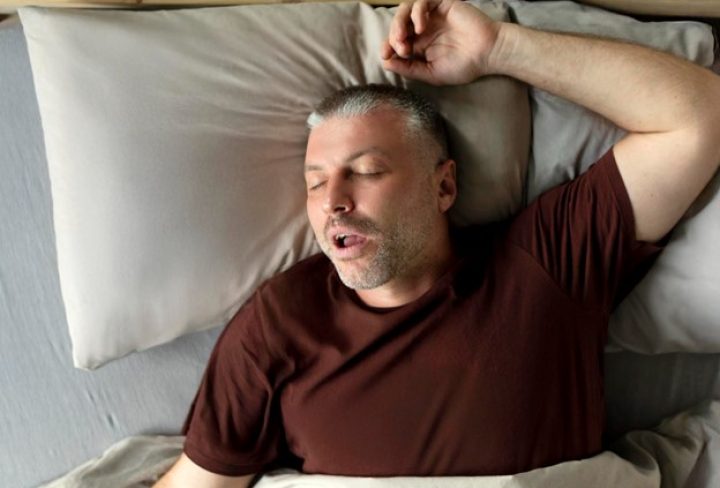A shocking statistic reveals that nearly a billion people worldwide suffer from sleep apnea, and India contributes significantly to this number. Sleep apnea is highly prevalent in India, affecting a staggering 5-7% of the population. This means that millions are dealing with its consequences. Yet, many remain unaware of this condition and its severe implications. Improving awareness of sleep apnea and its management is crucial for enhancing well-being. This journey begins with recognizing the problem and exploring practical remedies you can incorporate into daily life.
The Detrimental Health Effects of Sleep Apnea
Cardiovascular problems are a major concern for those with sleep apnea. Interrupted breathing at night puts a lot of stress on the heart. This can lead to high blood pressure, which is dangerous. People with sleep apnea have a higher chance of heart disease, too. It’s vital to address these risks for a healthier heart overall.
Sleep apnea affects mental health by messing with your mood and thoughts. Folks often feel down or anxious when dealing with this condition. It also makes it tough to remember and concentrate on things. Decisions feel harder, making every little choice seem too much. Managing sleep apnea well can really help keep your mind sharp.
Metabolic issues like weight gain are common with sleep apnea. Poor sleep quality causes increased hunger during the day. This often leads to eating more because energy is low. Gaining weight makes sleep apnea worse and also causes diabetes risk to rise. Breaking this cycle needs focus on sleep and healthy habits daily.
Lifestyle Factors and Their Influence on Sleep Apnea
Obesity and poor diet make sleep apnea worse by adding weight around the neck. This extra weight makes breathing more difficult during sleep, worsening symptoms. Better eating habits can lower this risk considerably. Including more fruits and vegetables, along with lean proteins, can help with managing sleep apnea effects.
Not being active can make sleep apnea worse, but regular exercise helps improve those symptoms. Activities like walking or cycling boost respiratory health and help with weight control. This means less strain on breathing while sleeping. Engaging in moderate physical activities daily can make a big difference, both for your health and sleep apnea relief.
Smoking and drinking alcohol worsen sleep apnea, so reducing these habits is important. Smoking causes airway irritation and contributes to inflammation, making breathing tougher at night. Alcohol relaxes throat muscles, which can increase apnea episodes, especially in a cultural setting where these habits are common. Cutting down on smoking and alcohol use can significantly ease the severity of sleep apnea.
Effective Solutions: From Lifestyle Changes to Professional Treatment
Recognizing early signs is crucial to tackling sleep apnea effectively. Getting diagnosed quickly helps manage the condition better over time. Early intervention prevents further complications linked with this sleep disorder. Consulting health professionals ensures informed choices and timely care. Addressing issues early leads to more successful long-term outcomes.
CPAP machines deliver consistent airflow, keeping airways open during sleep hours. While this treatment is popular, it isn’t the only choice out there. Other methods, like sleeping in certain positions, can also help. Oral devices prevent muscles from relaxing during sleep periods, aiding breathing. Each treatment, from CPAP to these alternatives, offers unique benefits. This variety allows people to choose what’s best for their specific case.
Support groups in India are a vital resource for dealing with sleep apnea. They provide guidance on treatment options and share useful coping tips. Being part of these groups means you’re not facing things alone. They offer great emotional backing and practical management advice too. Sharing stories in a group setting makes improving sleep health easier and more achievable.
Steps Towards Better Sleep: Maximizing Your Health Potential
- Begin improving your sleep now by checking in on your habits. Write down how you feel each morning and any snoring or sleep disturbances.
- Noticing a pattern? It’s time to talk with an expert about it. Professionals can guide you to solutions that fit your needs.
- Consider switching up your evening meals to promote better rest. Reduce heavy dinners and avoid late-night snacks for peaceful slumber.
- Add regular exercise into your routine for improved overall health and sleep. Light activity, like walking or yoga, can have big benefits for nighttime rest.
- Making sleep health a priority can change your life for the better. You owe it to yourself and your family to tackle snoring at home.
Commit now to quality sleep as an essential part of your daily life. Little changes today can mean big health improvements tomorrow

